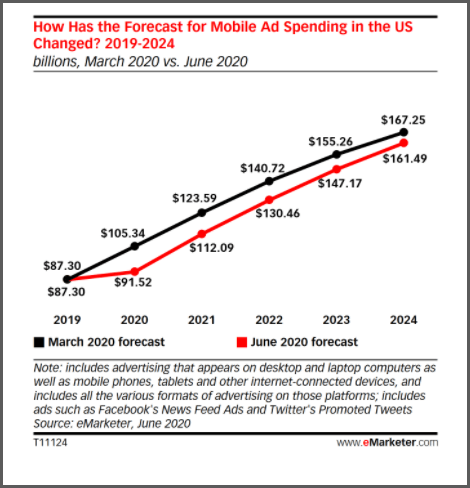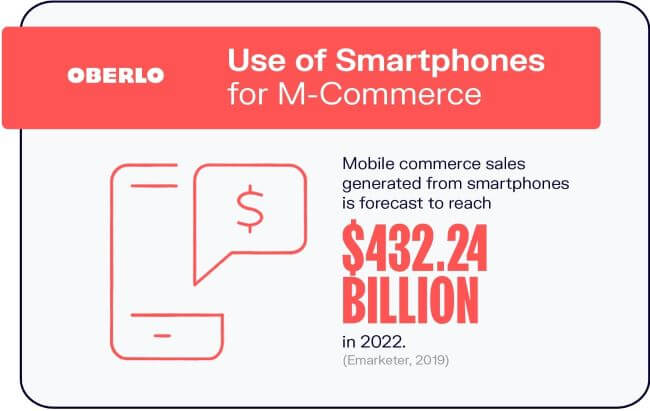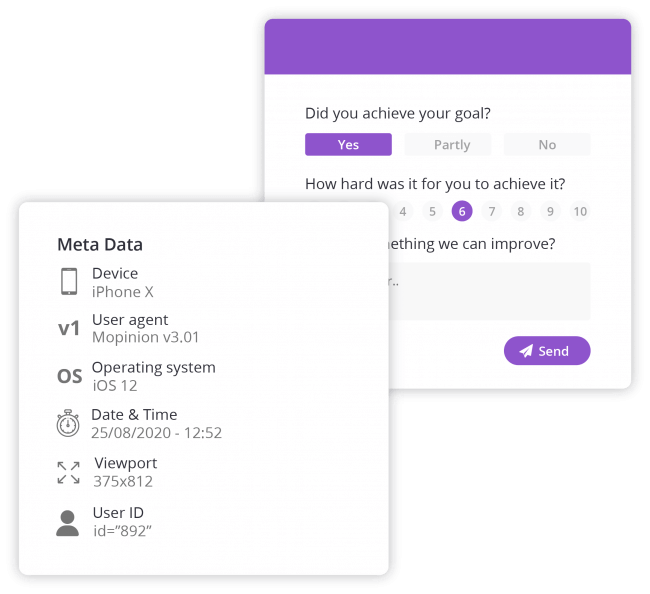Consumers are ready for mobile commerce, but are retailers? Mobile has become a major driving force in our daily lives. Think about it. We have the world in the palm of our hands – from streaming videos and social media platforms to reading the news and messaging friends. And this newfound habit of bringing our phones with us everywhere we go has greatly influenced how we get things done – including online shopping. In fact, the increased presence of so many mobile buyers and sellers has created what we refer to as mobile commerce, or mCommerce.
In this article, we will investigate why – in the past year – mobile commerce has become so critical for retailers. From how the global crisis has affected mobile usage and how this has created an upsurge in mobile commerce to why retailers should start using mobile commerce and how mobile feedback can help them optimise this digital channel.
What is mobile commerce?
According to TechTarget, mobile commerce is a form of ecommerce shopping that includes the buying and selling of goods and services through wireless handheld devices such as smartphones and tablets. This type of shopping can also take place within a native app, in which case it’s referred to as mobile app commerce.

Source: Researchleap.com
It has recently become a largely advantageous method of shopping for consumers as it allows them to shop whenever they want and wherever they want and pick and choose their preferred payment methods. Mcommerce also delivers a superior omnichannel experience thanks to the ability to market and sell products on multiple channels.
But why has it recently popped up on every retailer’s radar again?
Global crisis brings rise to mobile usage
As we’re all well aware, we are in the midst of a crisis; a crisis which has forced us to stay indoors and therefore limited a lot of the activities we use to do in person such as in-person conversations or daily tasks such as shopping. As a result, many of us resorted to our mobile devices.
According to Statista, this is how figures changed starting in March 2020 (the start of the outbreak):
Data from a global survey held in March 2020 revealed that 70% of responding internet users worldwide were using their smartphones or mobile phones more as a direct result of the coronavirus outbreak, though this varied significantly by country. In Germany, Australia, and the United Kingdom, less than 40% of survey participants said that they were using their phone more, but for China and the Philippines the percentage stood at 86%.
The numbers have since continued to rise with nearly 79% using their mobile phones more in September, which gives us reason to believe this will continue growing for some time. Learn how user feedback can aid in maintaining a sound customer experience.
This rise in usage – however – has presented quite a few challenges to network providers such as improving wireless capacity in some countries, internet speed and mobile data consumption.
But telecom companies aren’t the only ones affected by this influx in users…

The retail industry is also switching gears with increased mobile sales (both in-app and on mobile-optimised websites). That means that not only will retailers feel the pressure to increase mobile ad spending to remain competitive (by 2024, it’s projected that more than 2/3 of search ad spending will go to mobile), but also cater to a growing mobile audience of consumers within their app(s)…

Free White Paper: Boost your retail website with online feedback
An impending upsurge in mobile commerce
According to Ecommerce Times, this year (2021) mobile commerce sales are expected to account for 54 percent of all retail ecommerce sales. That’s great news for retailers who already have a great app up and running. And probably very stressful news for those not yet on the mobile front (i.e. stores that previously operated in-store only or simply do not yet have a mobile app available).
But don’t fret, there’s lots to gain from having a mobile app and still time to create and optimise this digital channel.
Steven Boal, CEO of Quotient:
Much like a physical store where consumers can experience a shopping environment that’s created for physical discovery, shopping apps can have the same experiential effect, with the added value of convenience to experience it anytime and anywhere
Why hop on the mobile commerce bandwagon?
Trust us when we say that there are plenty of reasons retailers should add mobile to their repertoire of digital channels. In addition to the one of the most critical reasons – remaining competitive, here are a few others in case you’re ‘on the fence’ about the idea.
Having a mobile shopping app will help you achieve:
- Increased Customer Retention. Shopping apps can improve customer retention by promoting repeat usage, better engagement and customer loyalty.
- Better User Experience. Native apps can offer a better and smoother experience for your customers compared to a mobile responsive website.
- New Channel to Reach Customers. In addition to email and web, you can offer your customers a smooth and seamless mobile experience.
- Additional Functionality. Apps enable certain settings such as push notifications to keep customers engaged and aware of updates.
- Valuable Insights from Customer Data. You can gather meaningful insights solely based on customer data within your mobile app.

Source: Emarketer
Now that you’re ready to get started with a mobile app, let’s take a look at one particular way in which you can ensure your app is up to par with the expectations of your users… A guide to in-app feedback for mobile product owners

Free White Paper: Optimising the Mobile Experience with In-App Feedback
and mobile marketers.
Leveraging mobile feedback to stay competitive
In order to achieve and maintain a superior mobile experience (and therefore remain competitive in the market), the application of mobile feedback is fundamental.
Once you’ve started creating your mobile commerce app, you will quickly realise that there are a lot of factors to consider when creating a mobile app, including design, speed and responsiveness and quality of product content. These factors are especially critical when transitioning from a website to a mobile app as there are lots of opportunities for bugs and technical errors to sprout up once your shopping app is live. Often your customers will be the first to experience these issues so by placing feedback forms throughout your mobile app, you’ll be able to capture valuable insights into the usability of the app and quickly resolve any issues that come about.

Be sure to read more about how to collect feedback in mobile apps here.
So if we backtrack a little, one of the first steps in jump-starting a mobile feedback programme is identifying the best (and most secure) way to collect this feedback for your business. Webviews, APIs and SDKs are all options, but be aware that each presents its own advantages and disadvantages. You will learn more about these in the mobile feedback whitepaper above.
If carried out properly, a good mobile feedback programme will put your retail business in a better position to optimise the mobile experience while simultaneously increasing conversions and creating a loyal customer base.
Join the mobile commerce party!
Looking to develop a new mobile app for your business? Then keep in mind that creating an app can be quite a finicky job – if you want to do it right. So it’s important to make sure you have the right partner in place and in-app feedback falls under your top priorities. Baking this into your strategy from the start will help you give app users the mobile experience and journey they deserve.
We hope this article gives you an indication of the urgency retailers are now facing when it comes to catering to customers in-app. This trend isn’t going anywhere anytime soon so if you want our advice, now’s the time to get started. Good luck!
Want to learn more about Mopinion’s all-in-1 user feedback platform? Don’t be shy and take our software for a spin! Do you prefer it a bit more personal? Just book a demo. One of our feedback pro’s will guide you through the software and answer any questions you may have.Ready to see Mopinion in action?







